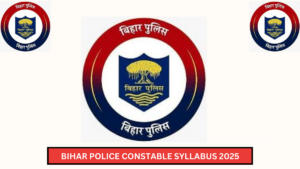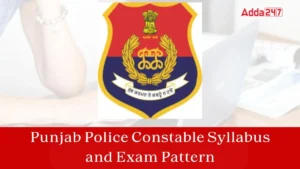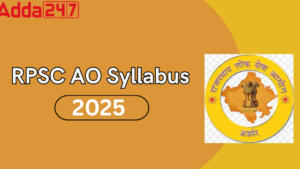Table of Contents
The KCET Syllabus 2025 has been provided by the exam authorities based on the 1st and 2nd PUC syllabuses. The KCET 2025 question paper will have 60 questions from each subject, giving equal importance to Physics, Chemistry, Mathematics, and Biology. Candidates must be thorough with the KCET 2025 syllabus before they start their preparation for the KCET 2025 exam and must have knowledge about the exam pattern also.
Students can choose combinations like PCM (Physics, Chemistry, Mathematics), PCB (Physics, Chemistry, Biology), or PCMB (Physics, Chemistry, Mathematics, Biology) based on their interests. This syllabus aims to test students’ knowledge in these four key subjects, helping those who want to get into professional courses through KCET 2025.
KCET Syllabus 2025
KEA has released the KCET 2025 Syllabus for Physics, Chemistry, and Mathematics separately. Along with the syllabus, candidates should also check the KCET Previous Year Question Papers and the exam schedule. The dates for the KCET 2025 exam will be announced soon.
Candidates are encouraged to carefully review the syllabus and exam format. The questions in the KCET will be based on the 1st and 2nd PUC syllabuses provided by the Karnataka State Department of Pre-University Education.
KCET Syllabus 2025: Key Highlights
The Karnataka Examination Authority (KEA) has officially released the KCET Syllabus 2025 on their website, kea.kar.nic.in. For those interested in pursuing a B.Sc. in agricultural studies, the syllabus covers essential subjects, including physics, chemistry, mathematics, biology, and agriculture. Below are the key details related to the KCET 2025 exam.
| KCET Details | Information |
|---|---|
| Full Name | Karnataka Common Entrance Test |
| Conducting Authority | Karnataka Examinations Authority |
| Frequency of Conduct | Once a year |
| Exam Level | State Level Exam |
| Exam Languages | English and Kannada |
| Application Mode | Online |
| Application Fee (General) | ₹500 |
| Mode of Exam | Offline |
| Mode of Counselling | Online / Offline |
| Participating Colleges | 198 |
| Exam Duration | 1 Hour 12 Minutes |
KCET 2025 Exam Pattern
The Karnataka Common Entrance Test (KCET) is a pen-and-paper-based examination conducted in multiple sessions. The exam is designed to evaluate students’ understanding of key subjects, including Mathematics, Physics, and Chemistry, through objective-type questions. The KCET 2024 will have a total of 180 questions, with each session lasting 1 hour and 20 minutes. Students can choose to take the exam in either English or Kannada.
| Exam Details | Information |
|---|---|
| Examination Mode | Pen-paper based |
| Number of Sessions | 3 Sessions |
| Exam Duration per Session | 1 hour 20 minutes |
| Medium of Language | English or Kannada |
| Question Type | Objective (MCQs) |
| Total Number of Questions | 180 Questions |
| Marks per Correct Answer | 1 Mark |
| Subject | Number of Questions | Total Marks |
|---|---|---|
| Mathematics | 60 | 60 |
| Physics | 60 | 60 |
| Chemistry | 60 | 60 |
| Total | 180 | 180 |
KCET 2025 Syllabus Detailed
KCET 2025 Physics Syllabus
| Class | Topics |
|---|---|
| First-Year PUC | Physical World, Units and Measurements, Motion in a Straight Line, Motion in a Plane, Laws of Motion, Work, Energy & Power, Systems of Particles and Rotational Motion, Gravitation, Mechanical Properties of Solids, Mechanical Properties of Fluids, Thermal Properties of Matter, Thermodynamics, Kinetic Theory, Oscillations, Waves |
| Second-Year PUC | Electric Charges and Fields, Electrostatic Potential and Capacitance, Current Electricity, Moving Charges and Magnetism, Magnetism and Matter, Electromagnetic Induction, Alternating Current, Electromagnetic Waves, Ray Optics and Optical Instruments, Wave Optics, Dual Nature of Radiation and Matter, Atoms, Nuclei, Semiconductor Electronics, Communication Systems |
KCET 2025 Chemistry Syllabus
| Class | Topics |
|---|---|
| First-Year PUC | Some Basic Concepts of Chemistry, Structure of Atom, Classification of Elements and Periodicity in Properties, Chemical Bonding and Molecular Structure, States of Matter, Gases and Liquids, Thermodynamics, Equilibrium, Redox Reactions, Hydrogen, S Block Elements, Some P Block Elements, Organic Chemistry – Some Basic Principles & Techniques, Hydrocarbons, Environmental Chemistry |
| Second-Year PUC | Solid State, Solutions, Electrochemistry, Chemical Kinetics, Surface Chemistry, General Principles and Processes of Isolation of Elements, P-Block Elements, D and F Block Elements, Coordination Compounds, Haloalkanes and Haloarenes, Alcohols, Phenols and Ethers, Aldehydes, Ketones and Carboxylic Acids, Organic Compounds Containing Nitrogen, Biomolecules, Polymers, Chemistry in Everyday Life |
KCET 2025 Maths and Biology Syllabus
| Subject | Class | Topics |
|---|---|---|
| Mathematics | First Year PUC | Sets, Relations & Functions, Trigonometric Functions, Principle of Mathematical Induction, Complex Numbers and Quadratic Equations, Linear Inequalities, Permutations and Combinations, Binomial Theorem, Sequence & Series, Straight Lines, Conic Sections, Introduction to 3D Geometry, Limits & Derivatives, Mathematical Reasoning, Statistics, Probability |
| Second Year PUC | Relations & Functions, Inverse Trigonometric Functions, Matrices, Determinants, Continuity and Differentiability, Application of Derivatives, Integrals, Application of Integrals, Differential Equations, Vector Algebra, Three Dimensional Geometry, Linear Programming, Probability |
KCET 2025 Biology Syllabus
| Biology | First Year PUC | Polymers, Chemistry in Everyday Life |
| Second Year PUC | The Living World, Animal Kingdom, Biological Classification, Structural Organisation in Animals, Plant Kingdom, Body Fluids and Circulation, Cell Cycle and Cell Division, Chemical Coordination and Integration, Morphology of Flowering Plants, Neural Control and Coordination, Locomotion and Movement, Breathing and Exchange of Gases, Anatomy of Flowering Plants, Mineral Nutrition, Excretory Products and Their Elimination, Transport in Plants, Cell: The Unit of Life, Respiration in Plants, Biomolecules, Digestion and Absorption, Photosynthesis in Higher Plants, Plant Growth and Development |




 Bihar Police Constable Syllabus 2025, Do...
Bihar Police Constable Syllabus 2025, Do...
 Punjab Police Constable Syllabus 2025 an...
Punjab Police Constable Syllabus 2025 an...
 RPSC Agriculture Officer Syllabus 2025 a...
RPSC Agriculture Officer Syllabus 2025 a...


 Adda247 Job portal has complete information about all Sarkari Jobs and Naukri Alerts, its latest recruitment notifications, from all state and national level jobs and their updates.
Adda247 Job portal has complete information about all Sarkari Jobs and Naukri Alerts, its latest recruitment notifications, from all state and national level jobs and their updates.